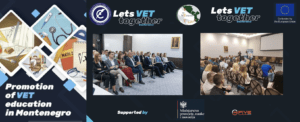

Lets VET together
Lets VET together May 28, 2024| Podgorica, Montenegro The “Let’s VET Together” Conference was held on May 28, 2024, at the Hilton Hotel in Podgorica,
3rd + 4th + 5th October 2023
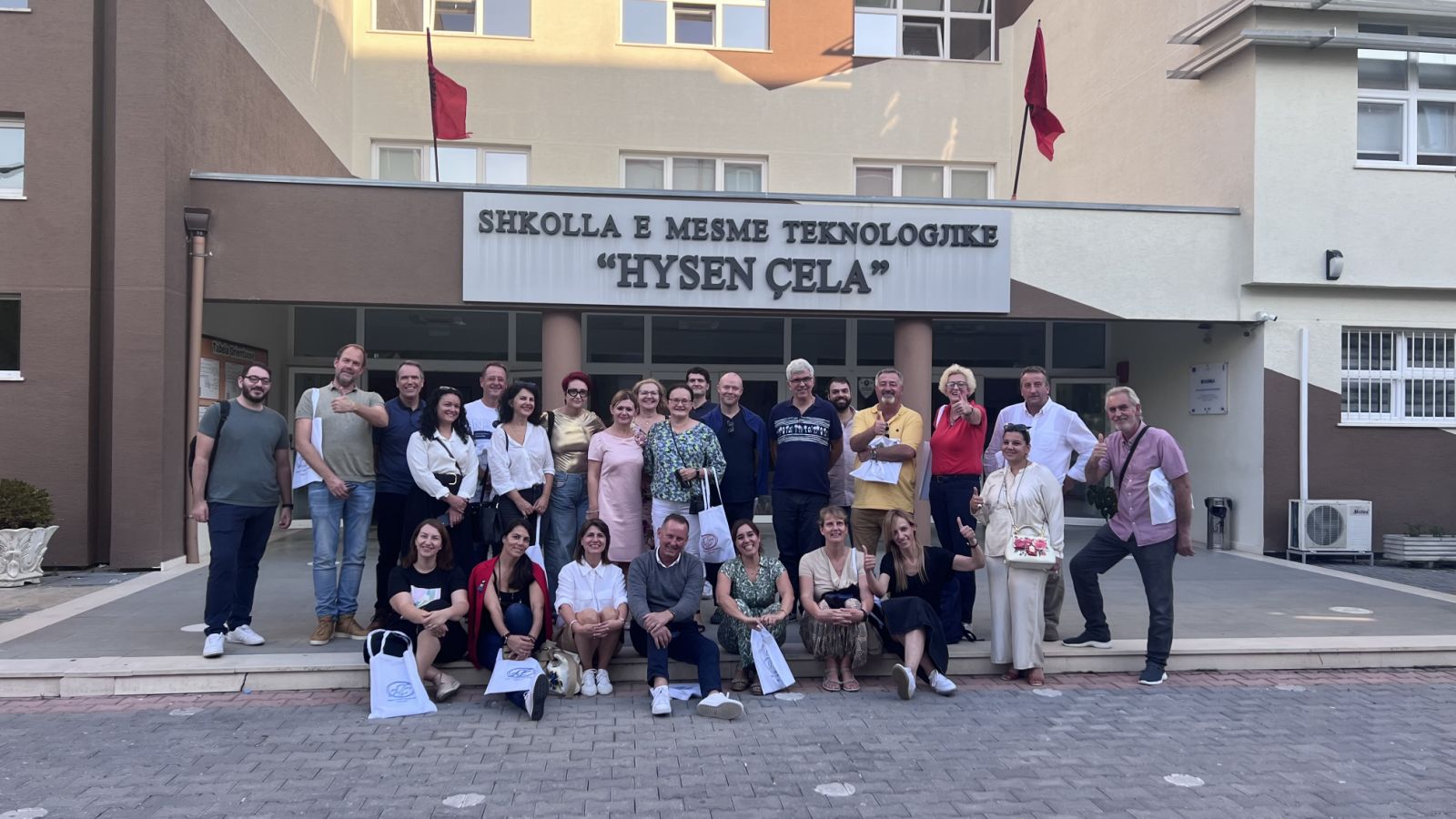
Ms. Lediana Koçkiçi, Alternative Pro welcomed the participants of the meeting with a Opening speech


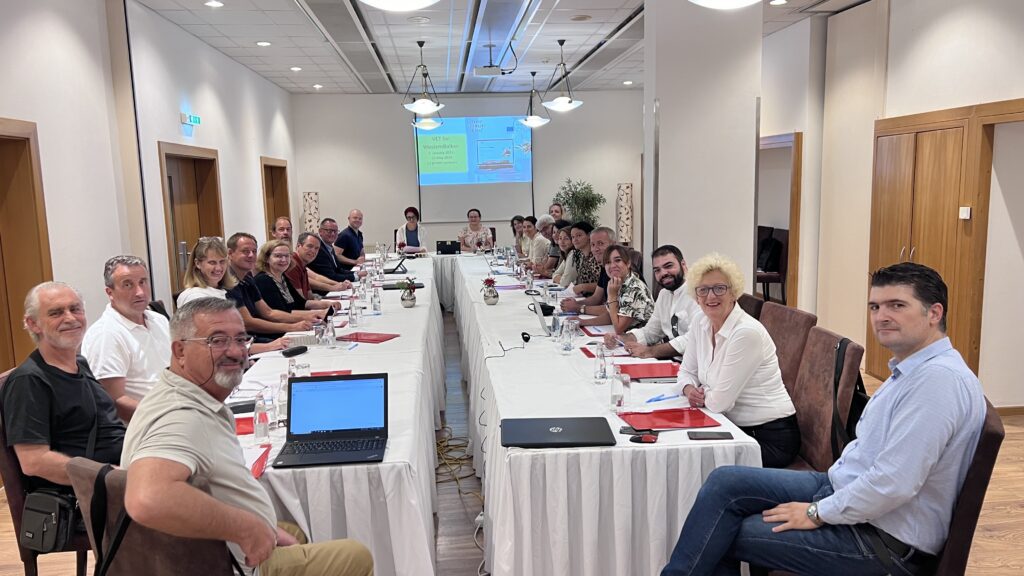

Since there were participants, who did not know each other from previous meetings, Ms. Bodil Mygind Madsen, SOSU Ostjylland, Project Coordinator of VET4WB, shortly introduced each participant one by one.


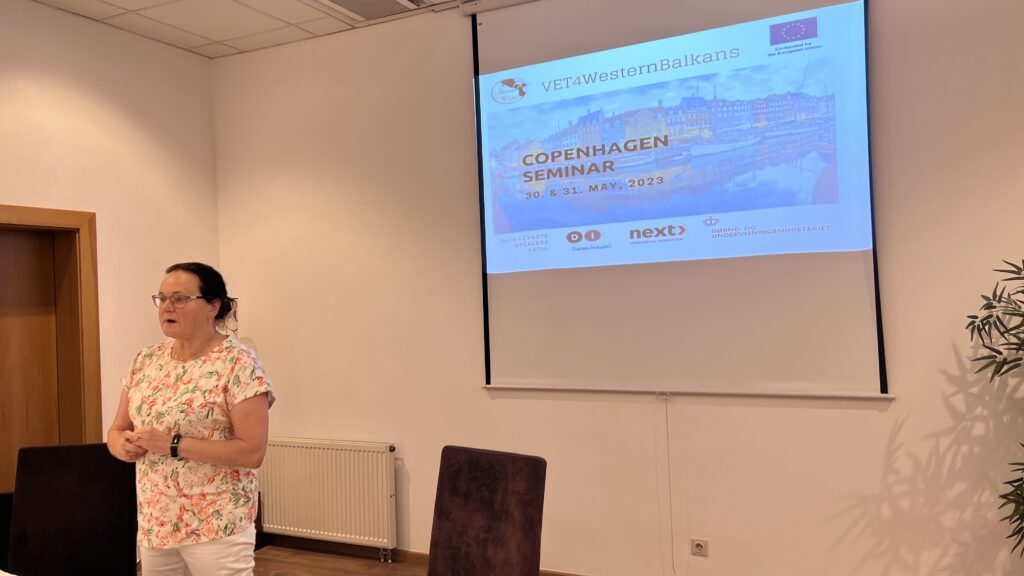

Bodil continued with a PowerPoint presentation of the state of affairs of the project. She started
mentioning that the project period has been extended, meaning that we have eight months’ work
ahead of us. She reminded the project partners of the background and the key issues of the project
and gave an overview of the completed and the coming mobilities and trainings.
Followingly Bodil explained the different phases of the project:
Phase 1: Mobilities/training
Phase 2: Production (booklets, learning platform with material)
Phase 3: Campaigns and events
Phase 4: Future cooperation
We are almost done with Phase 1, we are in a good process with the tasks of Phase 2 and we will now start planning the campaigns and event as well as the future cooperation.
Finally, she presented the plan for the coming financial reporting. Mr. Niels Vestergaard will be in charge of this and will contact each partner individually in the nearest future
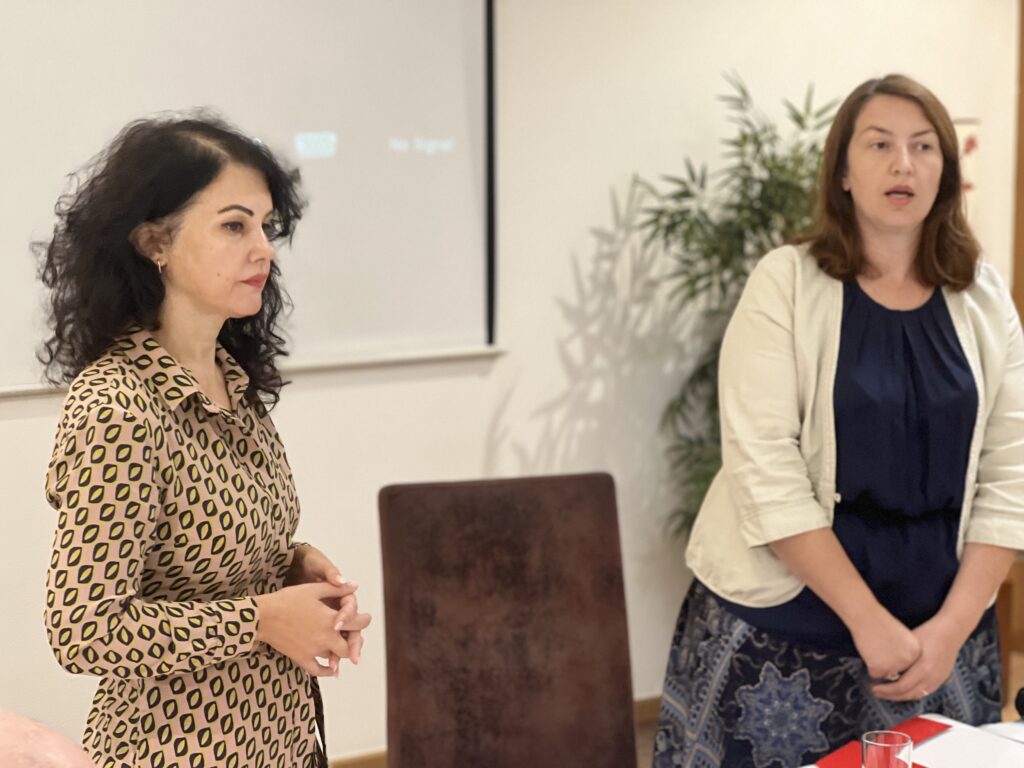

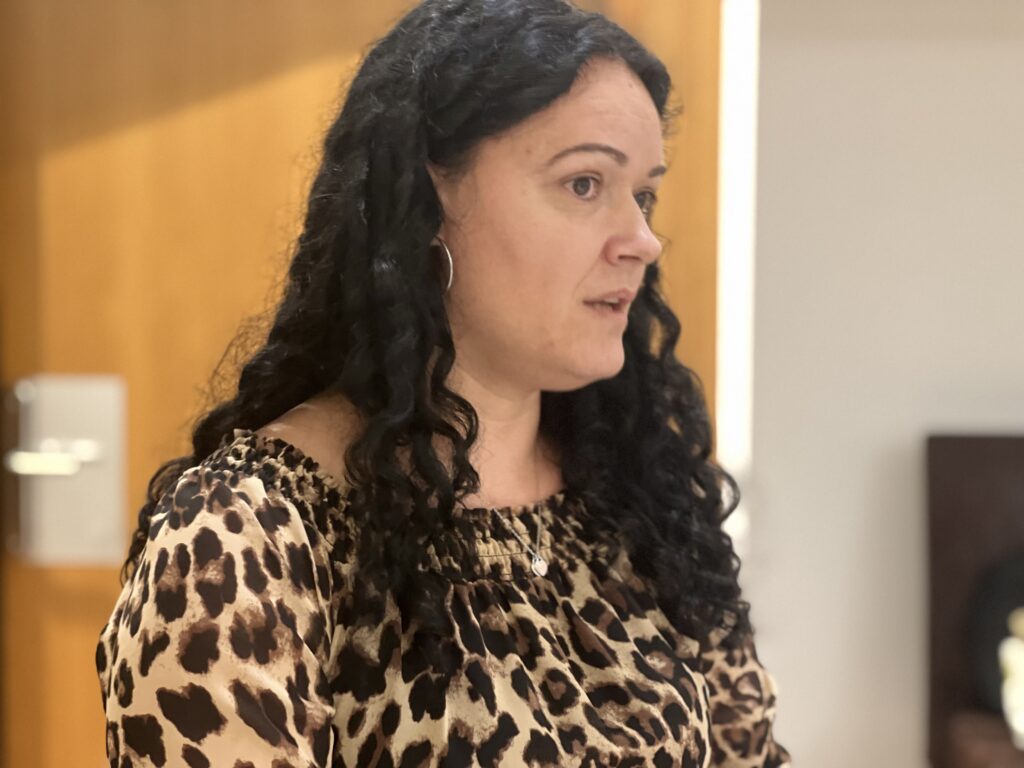

The Albanian managers’ mobility to Spain was presented by Ms. Merita Zeneli, “Hamdi Bushati”, who mentioned that among others, marketing had been a key inspirational topic for the Albanian school directors. The first training of teachers in Albania was presented by Ms. Bora Miruku, “Hamdi Bushati”, followed by a video presentation on these first activities of the two new Albania partners.


The next topic on the agenda was The VET for Western Balkans Leaning Platform and Booklets: Ms. Marina Braletić, Secondary Vocational School of Electrical Engineering “Vaso Aligrudić”, Montenegro, presented and elaborated on the development of the learning platform, the LMS, with an interactive interface with animations, videos etc., accommodating to the needs of teachers in the different countries and on different devices.


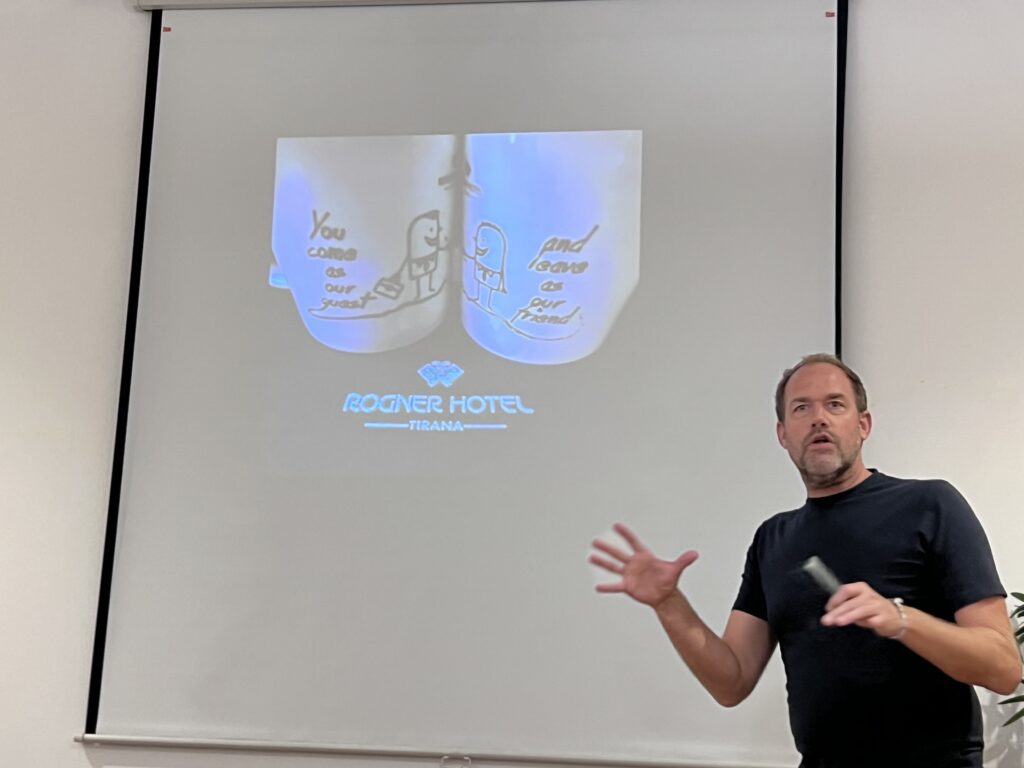

Mr. Peter van Engen, Landstede presented the results of the work on the material for the topic “Pedagogy and didactics in VET education” He mentioned the importance of focusing on the different reality and background of the Balkan teachers: It is important to focus on Balkan case studies. Ms. Nataša Kristan, Šolski center Kranj presented and elaborated on the development process regarding the topic “Enhancing transversal, generic and subject specific skills of students” and gave an overview of the professional fields for which the materials are being developed.
Bodil presented the work done so far on the topic “Counselling and Mentoring in VET education” and the plans for the topic “Management at VET schools.”


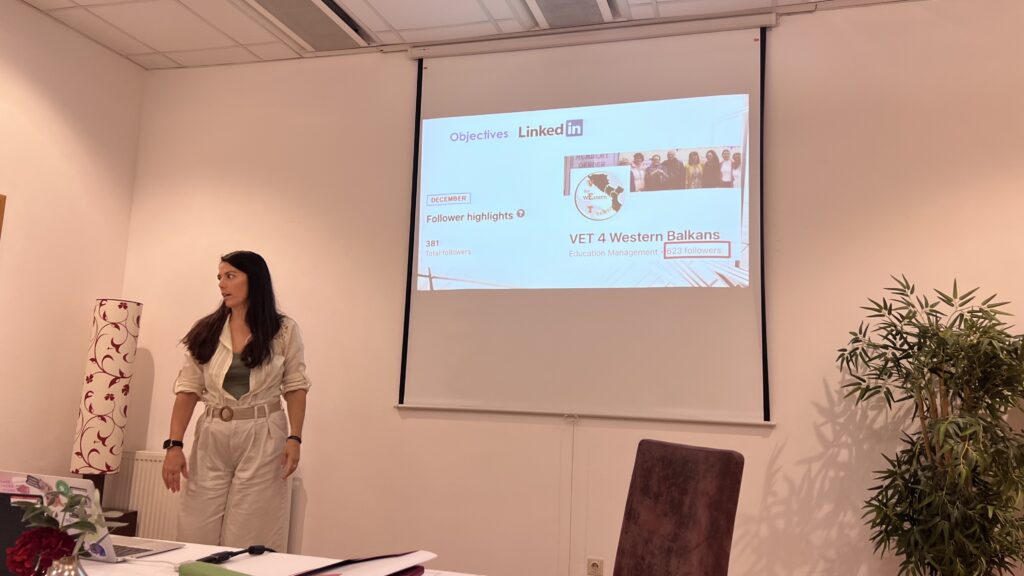

Mr. Thrasos Tilemachou, STANDO LTD, Cyprus and Ms. Marina Braletić, presented the results of the dissemination activities and ideas for new ways of dissemination:
The number of visitors to the website and followers on the social media are indeed very satisfactory. An interesting aspect: there is a majority of female viewers on social media.
New ideas for even better results:
1. Focus on partners’ activities (interviews with partners)
2. Use of new tools: Dissemination on EPALE: create a new EPALE group and disseminating by a series of articles and interviews on the project progress. (The European Commission will soon strengthen the focus on the use of the EPALE platform as a project dissemination tool.)
3. Making a video for the project, including video clips with project activities such as transnational partner meetings, trainings, partner comments, student comments, created material etc.
4. Focus on EfVET’ s role regarding dissemination of the project, suggestion to make an interview with Ms. Valentina Chanina.


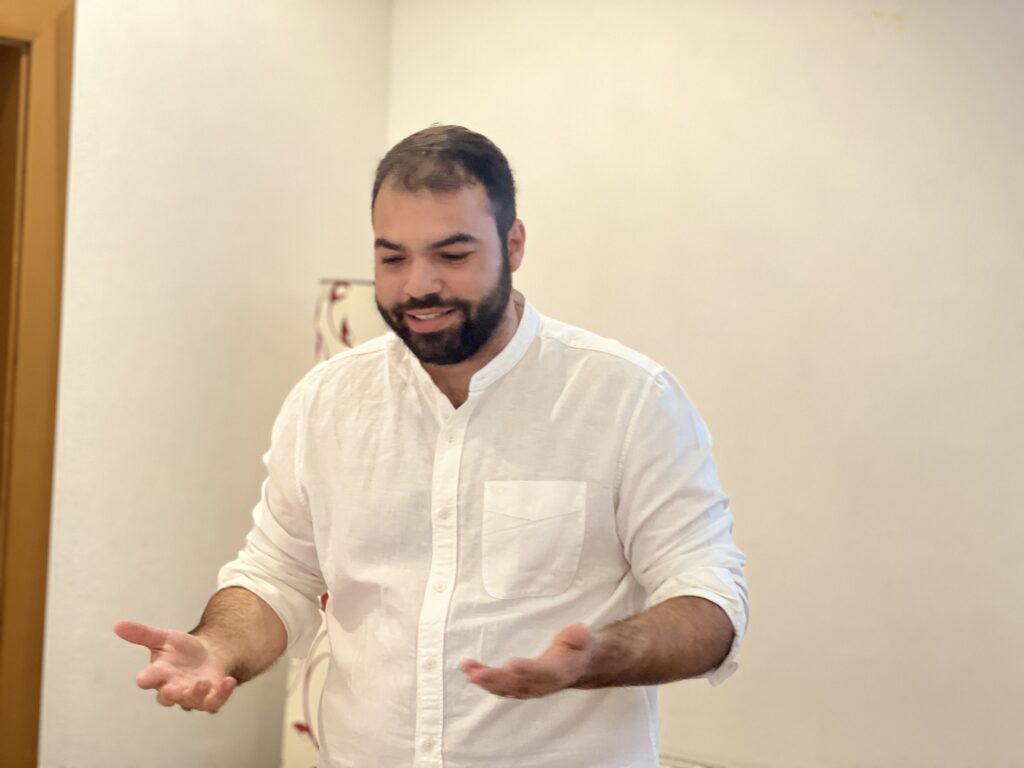

Ms. Marijo Moreno, ERROTU, Spain, external evaluator, presented the results of the external evaluation of the trainings and the mobilities so far in the project, based on quantitative (questionnaires) and qualitative (interviews) evaluation methodologies. Overall, a very high score through all aspects of the evaluation could be seen, even with an increase in high scores with project progress.
A very positive impact is that the relationship between the Balkan countries has improved through the project. Also, the information and preparation prior to the mobilities/trainings has improved.
Different evaluation methods of online meeting were discussed:
Thrasos will merge the suggestions into a new evaluation methodology.
After having reflected on yesterday’s meeting, the participants were divided into two group: The Western Balkan partners and the EU partners, and an introduction to the workshops was given.
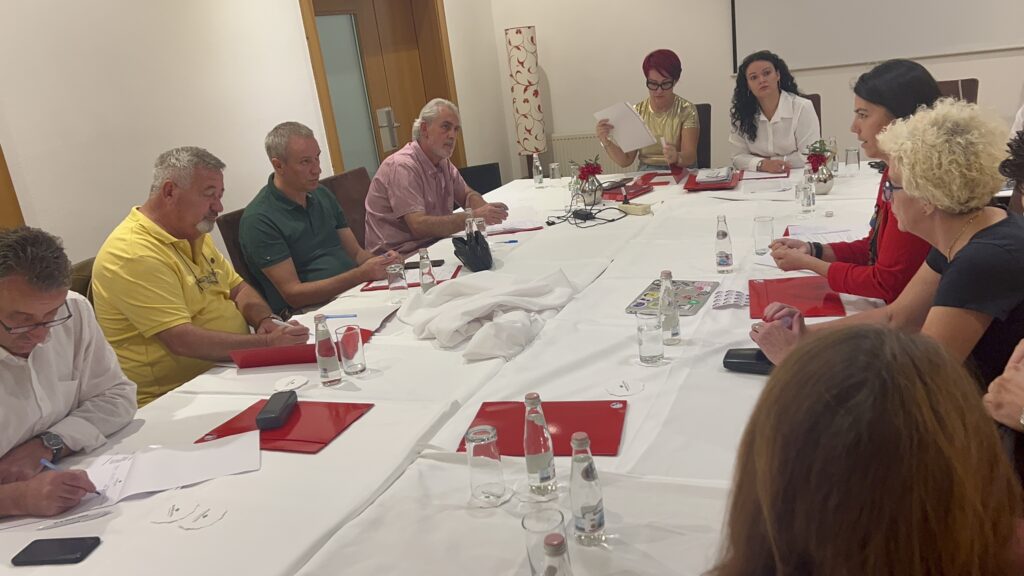

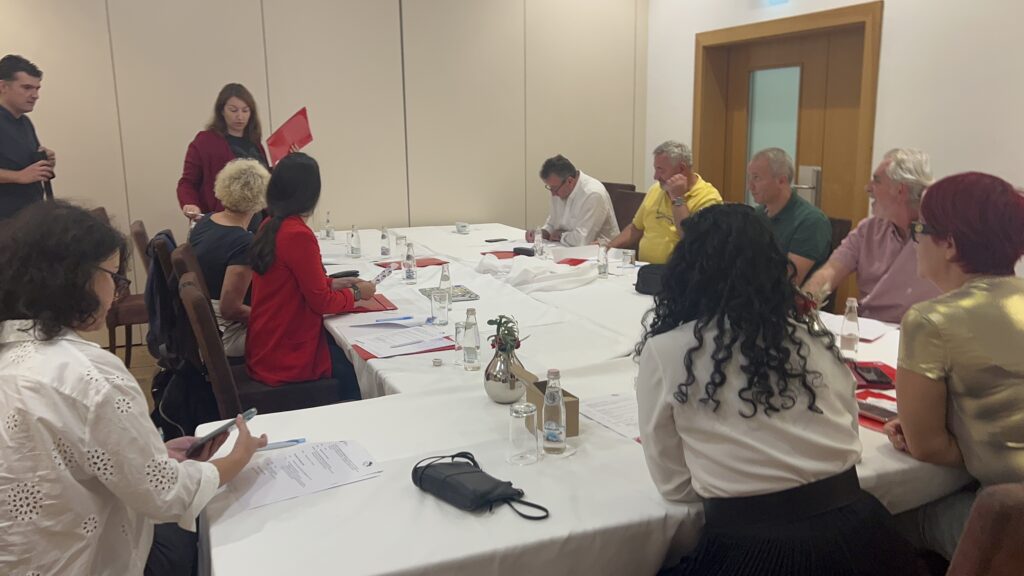

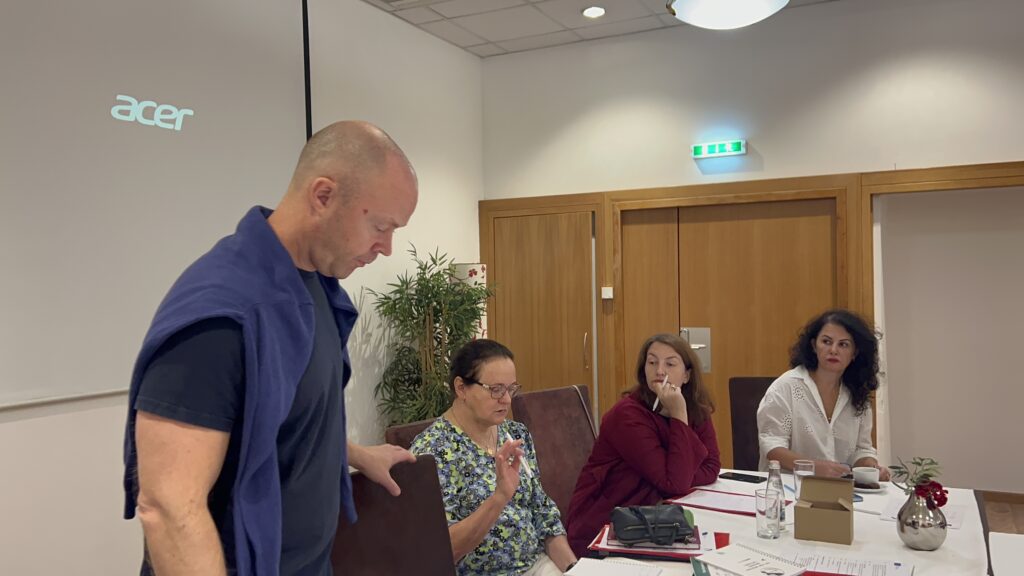

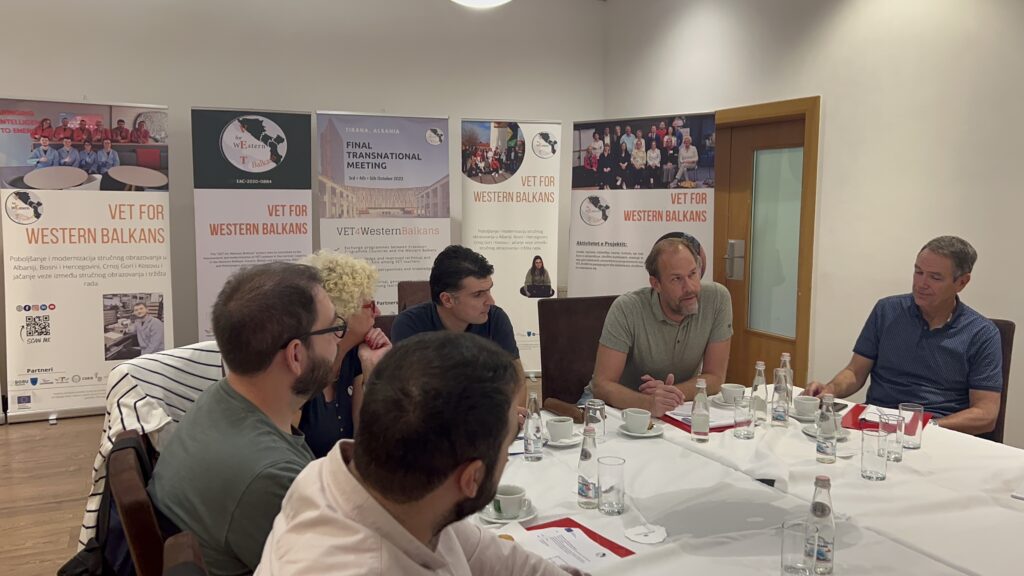

The EU partners among others mentioned these ideas for future cooperation: Enriching the EU gastronomic/cultural heritage by adding new Balkan gastronomic/cultural elements. Focus on family values (strengthening the family ties). Co-existing between Islam and Christianity. Relation to authorities – focus on how to deal with challenging issues. Preparation for EU-inclusion. Intangible cultural heritage – bring together cultural elements, creating a focus on what unites us. Assimilation of Balkan students into EU-society – cultural exchange. AI (Artificial Intelligence) how do we integrate it as a learning methodology across borders and cultures?
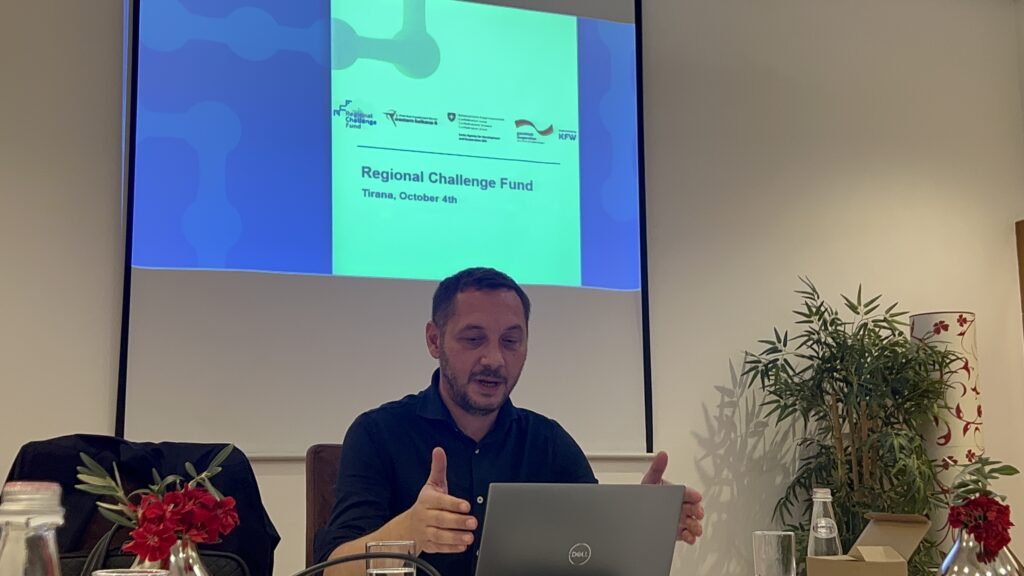



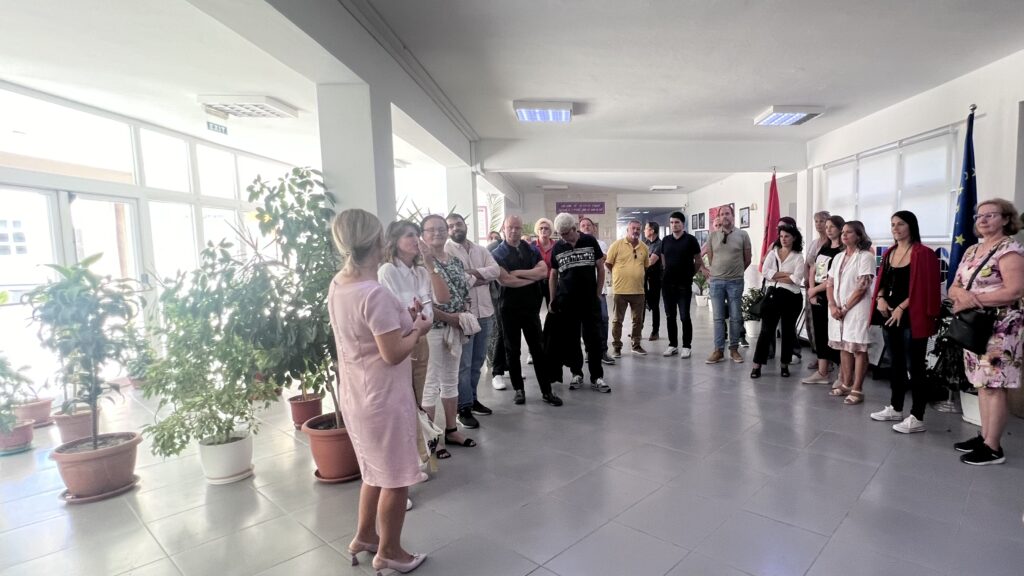

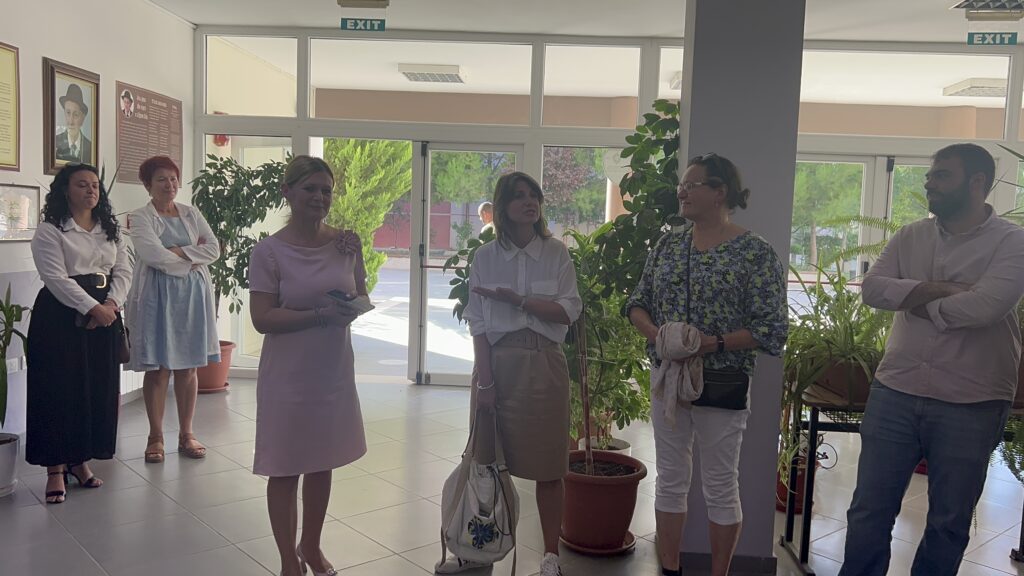

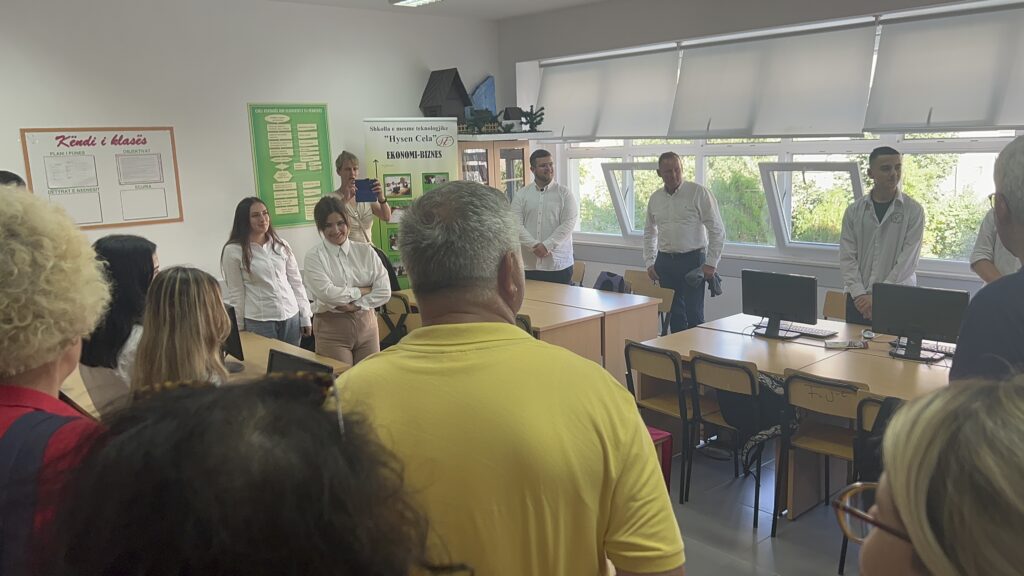

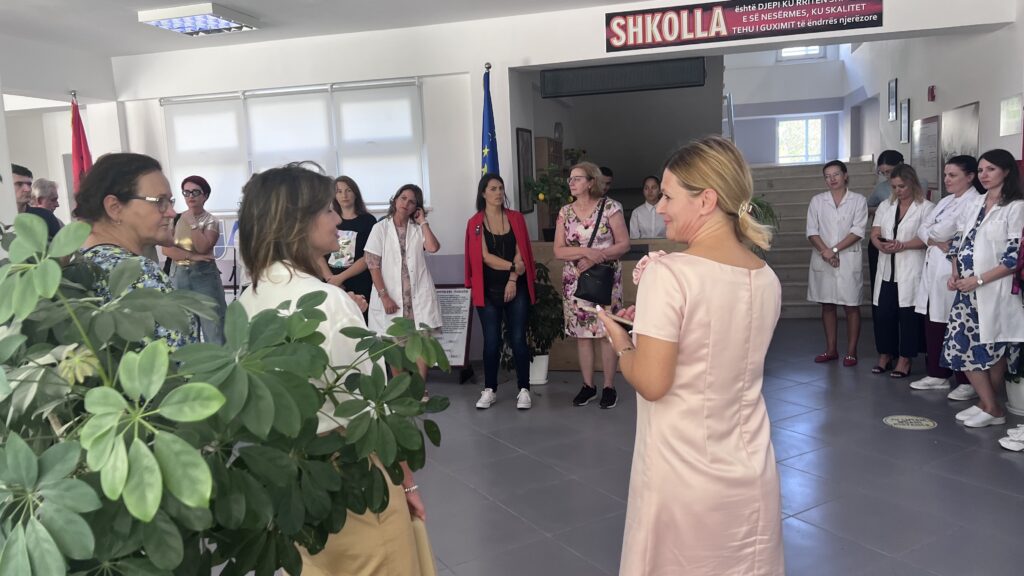

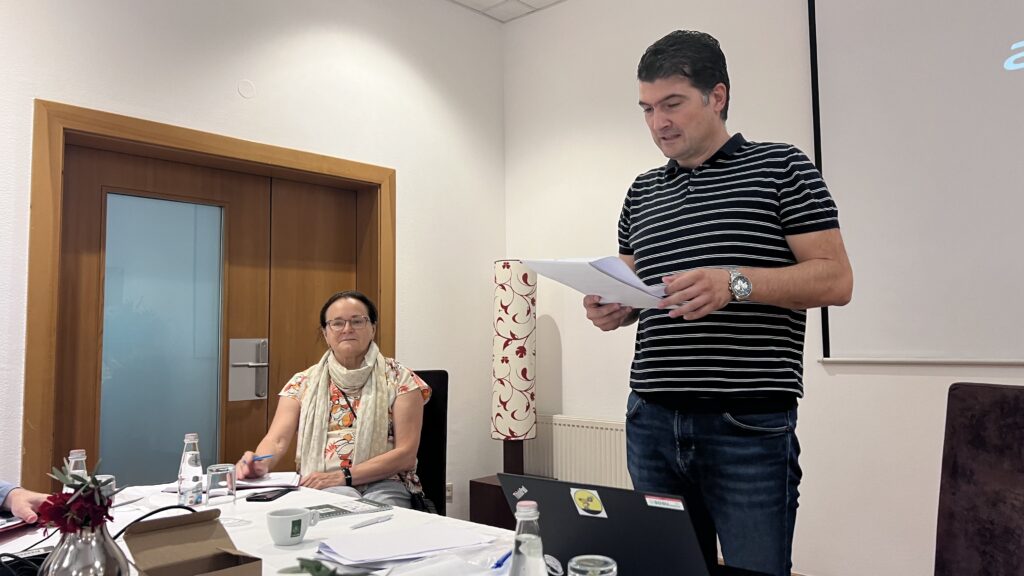

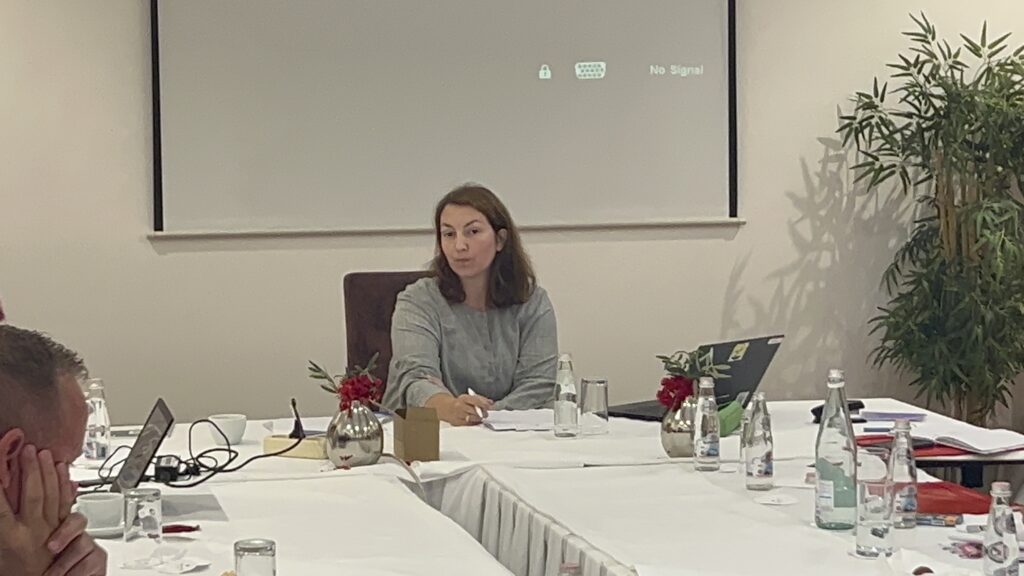





Main points of the presentations in plenum after the group work:
Bosnia and Herzegovina: Combination of campaigns and events > campaigns promoting events. Engage external partners/companies. Events: Marketing company organising the events. Campaigns: Include partners also from outside the region. Fight the stigma of VET education > targeting parents etc. > focus on te quality of VET education accommodating employers’ needs. Organising by means of: Marketing, billboards + leaflets, TV advertisements (including VIP statements and student success stories) and social media advertising (targeting a young audience).
1st Event: Panel discussion with representatives from agencies, ministries, free universities, VET schools, companies, chamber of commerce, trade unions and partners from the Western Balkan. Result: Highlighting the challenges of the VET system + attract new students to the field.
Solution: Create a synergy among participating partners
2nd Event: Targeting Parents and students: Dates to be defined.
Albania: Campaigns and conferences will be separate. Campaigns prior to conferences. Each city will have its own campaign. Campaigns in April 2024. Conferences: End of April/May 2024.
Theme: Why choose VET education? Participants: Representatives from ministries, directors, VET repr., parents and students. Campaigns developed by the schools. Campaign content:
Collaboration with labour market, companies > focusing on attracting the 9th grade students – success stories presented. Marketing material: Hoodies with big logos, videos with former students telling success stories, TV advertisements in main local Broadcasting > Why VET – New perspectives.
Kosovo: Events: Conferences involving all relevant institutions and partners promoting VET education – presentation of achievements and success stories. Students visiting VET schools > highlighting the benefits and employments opportunities and opportunities for further studies. Organising TV shows/advertisements and via social media; informing about opportunities of VET education targeting new students, municipalities, parent councils and companies promoting the importance of their cooperation with VET education. Campaigns and Events during spring 2024. Open doors week in May to be used for attracting new students.
Montenegro: 1st Event by the end of 2023 highlighting the results of the Copenhagen Seminar inviting representatives from ministries, VET centers, directors, parents and representatives from the Western Balkan partners (support from EU partners). 2nd Event – when the learning platform is launched > promoting the platform for representatives such as teachers, schools, chamber of commerce, trade unions etc. Arrange some kind of mobility bringing EU teachers to the Montenegro school. Use local students to film the mobility > promoting the activities to attract new students. Wish/need for concrete actions/activities > inviting EU teachers to show/practice how to apply a soft skills methodology in teaching.


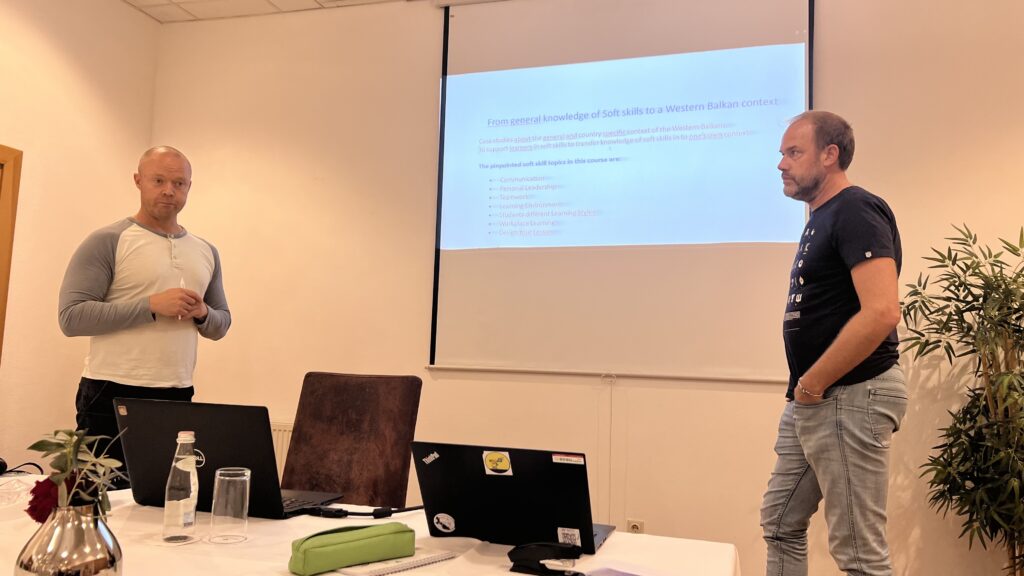



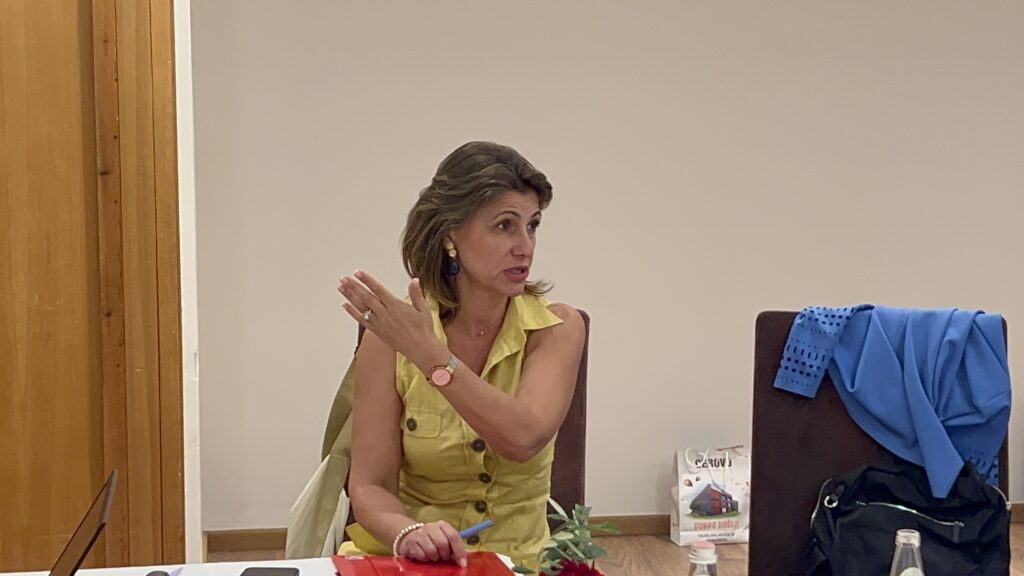

Evaluation: Thrasos Tilemachou: Elaborating on meeting evaluations and the performance of qualitative interviews. Different needs regarding online questionnaires for Balkan partners and EU partners.
Soft skills: Peter van Engen: A more concrete take on the theoretical soft skills materials developed so far, suggesting the inclusion of storytelling/case studies in a Balkan perspective.
To do: Developing local/national case studies from Balkan partners relating to the application of soft skills. Presentation of a soft skills application model. Suggestions for case studies (Montenegro): Include teachers from other schools in Montenegro to develop case studies – this could apply for other Balkan partners too.
Learning material / Booklets – Slovenian partner and Irida Tase:
Irida explained about ETASI; an effective methodology to prepare students for the labour market by doing/solving real business cases in the class room.
Nataša Kristan suggests to include the ETASI methodology and other similar methodologies in the learning material/booklet.
The presentations were followed by discussions and by an overall oral evaluation of the meeting, that ended with a goodbye dinner in Kruje.


Lets VET together May 28, 2024| Podgorica, Montenegro The “Let’s VET Together” Conference was held on May 28, 2024, at the Hilton Hotel in Podgorica,
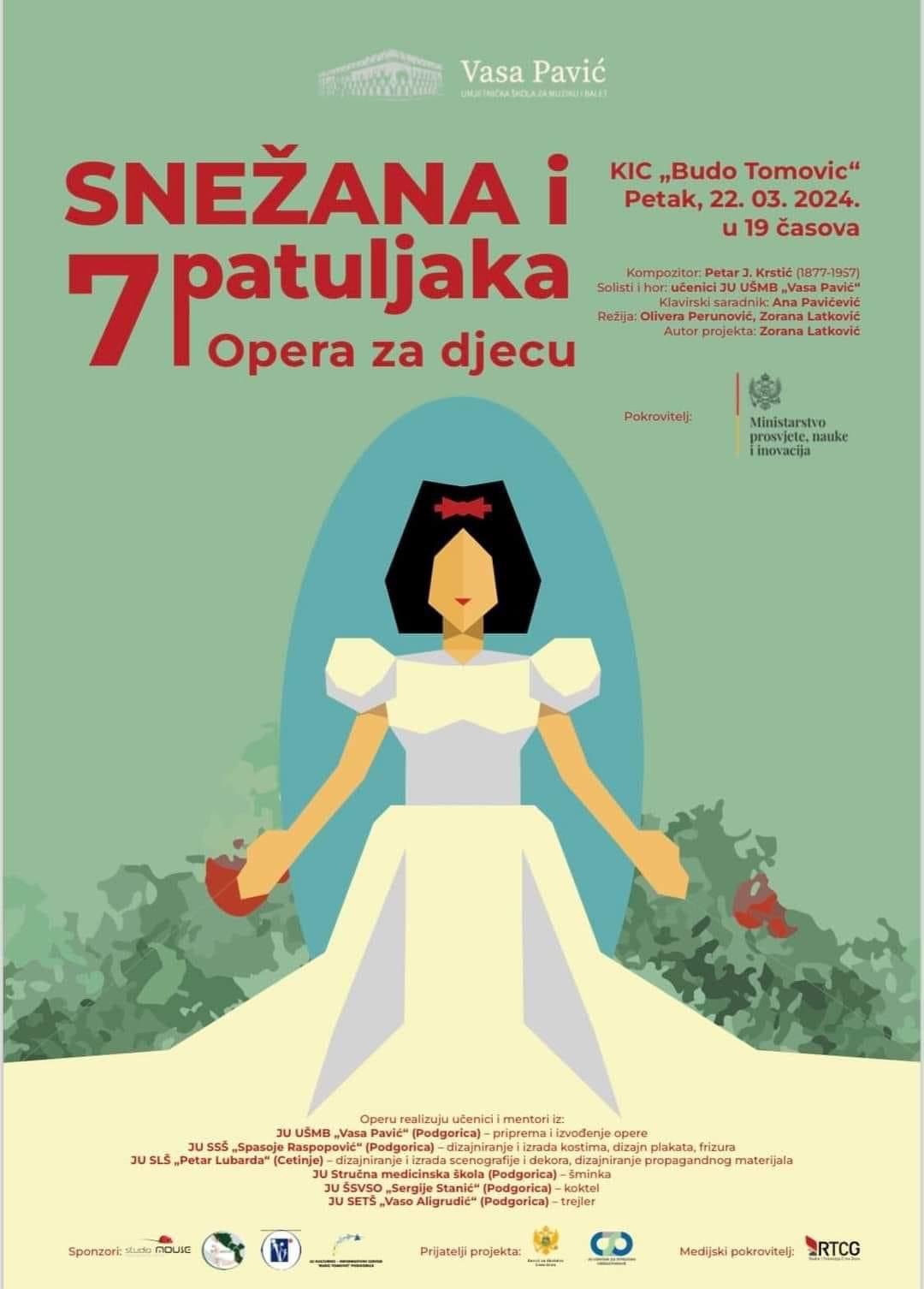

Opera for children “Snow White and the Seven Dwarfs” March 22, 2024| Podgorica, Montenegro The first opera for children “Snow White and the Seven Dwarfs”